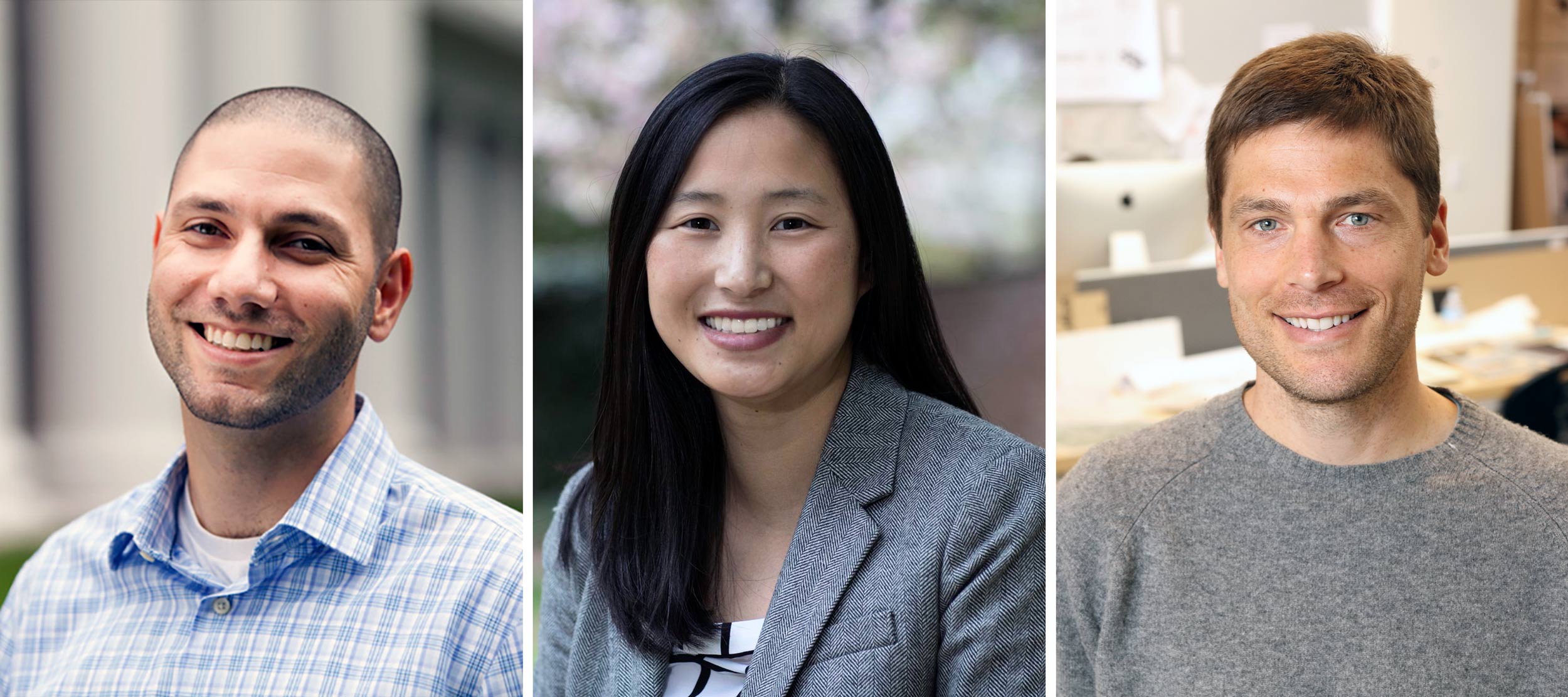There's a lot of thought that goes into adding things to our routines, our closets, our lives. But how much thought goes into subtracting things? Not enough, according to three University of Virginia professors.
On Friday, the trio is headlining a Fridays at Batten talk at 11:30 a.m. in the Great Hall of Garrett Hall to talk about the transformative power of subtraction in our lives.
Ahead of the presentation, Leidy Klotz of the School of Engineering and Applied Science, and Gabrielle Adams and Ben Converse from the Frank Batten School of Leadership and Public Policy chatted with UVA Today to tell how we can sometimes gain more by taking things away.
Q. What do you mean when you say "subtracting" from our lives?
Klotz: Most of the time, if you want to change something to make it better, your two main options are to add new components or to take away components that are already there. This is true for ideas, objects and situations. If you want to improve an argument in a paper, you can try to gather more evidence or you can try to get rid of the weaker arguments. If you want to improve some product or service, you can add new features or you can remove extraneous ones. It's the same when you're designing your life. You can add new goals or subtract old ones. You can add incentives or remove barriers.
Adams: The main finding from our research together is that when people generate ideas for how to change something, they default to thinking about what they can add. And we know from lots of behavioral-science research that in everyday decisions, people will often just go with the first decent solution that comes to mind. So, what often ends up happening when they're trying to change something is that they will pursue some additive solution that popped to mind without even considering other potential subtractive options.

Professors Benjamin Converse, Gabrielle Adams and Leidy Klotz all make a case for the transformative power of subtraction. Klotz, who wrote a book on the subject, even suggests pairing a "Stop Doing List" with your "To Do List." (Contributed photos)
Q. Why is it so hard for people to clean out their closets or manage their bursting email inboxes? What holds us back from paring down?
Converse: Well, once you've set your mind to paring down, it's probably just a question of motivation and resources. But our research on subtractive transformations is more relevant a step earlier in that process. Why are our inboxes overflowing in the first place? Probably because each time we think about our work portfolios, we're quick to think of adding new projects that sound exciting and slower to think of subtracting old projects that are stalling out. Why are our closets stuffed in the first place? Probably because each time we think about how to improve our well-being, we're quick to add new activities - and their associated stuff - and slower to think of subtracting the distractions that get in the way of having more downtime in the first place.
Q. Aren't most people hard-wired to accumulate more - more money, more things, more experiences? How do you convince people to reverse that?
Converse: We're not trying to convince people to have different preferences. We just want to remind them to consider all their options. Sometimes more is better. Sometimes less is better. The only problem is that people won't identify subtractive improvements if they don't look for them in the first place.
Adams: Of course, if an organization wants to encourage people to consider subtraction as an option, it can do more to celebrate it and it can do more to remind people of it. Leidy always says that subtraction has a "noticeability problem." If you cut words from a paper, no one sees it. If you cut unnecessary costs from a future budget, people might not even know that you found them savings in the first place. So, one reason people may not be quick to think of subtraction is because it's not usually valued. Leaders could certainly do more to celebrate valuable subtractions. And they can do more to remind people of the option.
Converse: Right. We're always proud when Dean [Ian] Solomon asks in Batten faculty meetings if anyone has anything to add or subtract.
Q. What is one simple thing a reader can do right now to start subtracting?
Klotz: I'm a big proponent of keeping a "Stop-Doing List" right next to your "To-Do List." To most people that probably sounds like a very strange habit. But why should it be any less common? Time is the scarcest resource we have.
Q. What one thing do you most want people to take away from this presentation?
Converse: Think of some activity that you can subtract from your schedule so that you have some extra time to read Leidy's book, "Subtract: The Untapped Science of Less."
Klotz: Or subtract that, too, and just remember to look for subtractive opportunities. Subtractive changes may not be the first changes that come to mind, but they are often quite useful for changing situations, objects and ideas.









